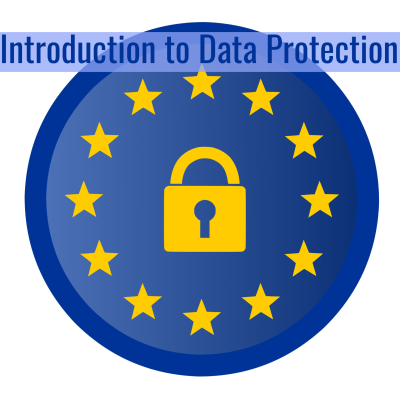+ View more
Course overview
Overview of data protection laws and regulations in Germany and the EU
Explanation of the importance of data protection and the risks associated with non-compliance
What will i learn?
- This course is provided in both English and Germany for the necessary basic level of Data Protection Knowledge.
- This will provide learners a broader understanding of the importance of data protection and how it is applied in different industries.
- This will provide learners with basic understanding of an audit, identifying areas of non-compliance, and developing strategies to address them.
- This will help learners better understand how data privacy tools can assist organizations in complying with data protection regulations.
- This will provide a fun and interactive learning experience for learners, enhancing their knowledge retention and understanding of data protection principles and regulations, with quiz test.
- This will help learners develop critical thinking skills and better understand how to apply data protection principles and regulations in real-world scenarios.
Requirements
- This is the basic course that all members in a company should have and the requirement is to be a at beginner level of data protection.
Curriculum for this course
16 Lessons
00:23:02 Time
Understanding Personal Data
2 Lessons
00:02:49 Time
-
Understanding Personal Data
00:02:49
-
Understanding Personal Data Quiz.
0:00:00
Data Protection Principles
2 Lessons
00:02:51 Time
-
Data Protection Principles
00:02:51
-
Data Protection Principles Quiz.
0:00:00
Rights of Data Subjects
2 Lessons
00:02:37 Time
-
Rights of Data Subjects
00:02:37
-
Rights of Data Subjects Quiz.
0:00:00
Data Protection Impact Assessments (DPIAs)
2 Lessons
00:02:42 Time
-
Data Protection Impact Assessments (DPIAs)
00:02:42
-
Data Protection Impact Assessments (DPIAs) Quiz.
0:00:00
Incident Response and Reporting
2 Lessons
00:03:25 Time
-
Incident Response and Reporting
00:03:25
-
Incident Response and Reporting Quiz.
0:00:00
Vendor Management and Data Sharing
2 Lessons
00:01:53 Time
-
Vendor Management and Data Sharing
00:01:53
-
Vendor Management and Data Sharing Quiz.
0:00:00
Ongoing Compliance
2 Lessons
00:04:08 Time
-
Ongoing Compliance
00:04:08
-
Ongoing Compliance Quiz
0:00:00
Q&A and Review
2 Lessons
00:02:37 Time
-
Q&A and Review
00:02:37
-
Final Quiz Questions for the beginner data protection program, to check your progress.
0:00:00
Frequently asked question
Q: What is personal data?
A: Personal data is any information that relates to an identified or identifiable natural person. This can include names, addresses, phone numbers, email addresses, identification numbers, location data, and online identifiers.
Q: What are the different types of personal data?
A: There are several types of personal data, including sensitive personal data (such as health information or religious beliefs), criminal records data, and children's data.
Q: How can organizations ensure that they are fulfilling data subjects' rights?
A: Organizations can ensure that they are fulfilling data subjects' rights by having clear policies and procedures in place, providing individuals with easy access to their data, responding to data subject requests in a timely manner, and implementing appropriate technical and organizational measures to protect personal data.
Q: What is a Data Protection Impact Assessment (DPIA)?
A: A DPIA is a process that helps organizations identify and mitigate the risks associated with processing personal data. It involves assessing the necessity and proportionality of the processing activity, as well as identifying potential risks and implementing appropriate safeguards.
Q: Why are DPIAs important?
A: DPIAs are important because they help organizations identify and mitigate the risks associated with processing personal data. They also help organizations comply with data protection regulations and demonstrate accountability.
Q: When should a DPIA be conducted?
A: A DPIA should be conducted when a processing activity is likely to result in a high risk to the rights and freedoms of individuals, such as when processing sensitive personal data or when using new technologies.
+ View more
Other related courses
About instructor
Client feedback
Reviews
-
 Ian Hillman
Ian Hillman


Write a public review